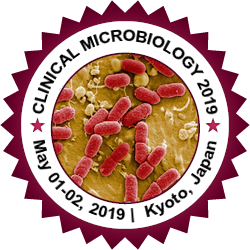
Lavanya Madhavaraj
Chonbuk National University , Korea
Title: Influence of Microbial Consortium as a Biological Control Agent on Swine Waste Odour Reduction
Biography
Biography: Lavanya Madhavaraj
Abstract
The harmful odours generating from the agricultural industry, especially from swine farm is a serious issue throughout South Korea. The objective of this study was to inhibit and control the swine waste odour by the cost-effective biological control method. Therefore, we have developed a method utilizing microbial consortium that can degrade the swine waste odour without affecting the properties of waste as manure. As part of these studies, we have taken a microbial consortium of Bacillus subtilis, Rhodobacter sphaeroides and Saccharomyces cerevisiae that can be utilized as biological control method due to their property of forming a biofilm and also the reason that these organisms can grow in assimilating ammonium nitrogen which reduces ammonia emission during composting of swine waste. In addition, immobilized whole cells of Nitrosomonas eutropha that are capable of carrying out the nitrification process were also tested as an additive with the consortium. These organisms were present at a concentration as high as 1.2×109 CFU/ml (B. subtilis); 2.0×109 CFU/ml (L. plantarum); 3.9×109 CFU/ml (R. sphaeroides) and 6.7×107 CFU/ml (N. eutropha). Two batch reactions were carried out, one by mixing the consortium along with immobilized whole cells of N. eutropha and the other by using only consortium as an additive. About 35% nitrogen loss and a decrease of ammonium concentration was detected when the immobilized whole cells were added. In contrast, only 20% nitrogen loss was measured when a consortium was utilized. This study demonstrated a simple, cost-effective approach to deodorize and treat swine waste odour effectively.

